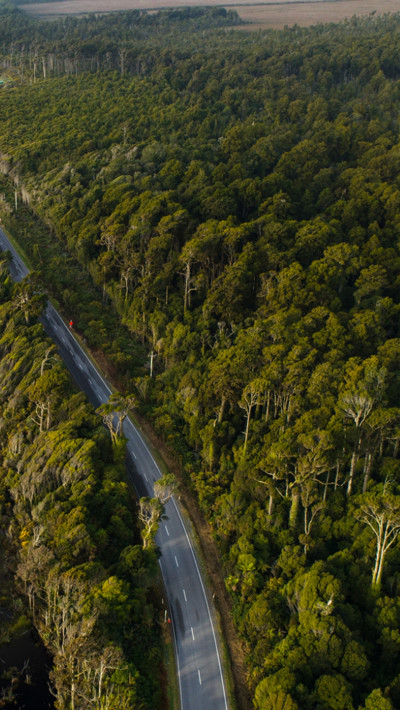Speak to our experts
Contents
What do the major (and minor) parties have in store for climate policy post-election?
Although the climate crisis will be a high energy imperative for the next and all subsequent New Zealand governments, it is being subsumed this election campaign in favour of cost-of-living issues by all parties except the Greens.This is due in part to the fact that both National and Labour support the Zero Carbon Act emissions targets and budgets and that both also appear to be willing to confront the challenge of climate adaptation – although there may be differences in how the costs are allocated, and in the preparedness to use compulsion to force change.
The political contest is mainly confined to mitigation – which translates in the New Zealand context to how much reliance should be placed on the Emissions Trading Scheme (ETS), how strong the ETS price signal should be, how ETS revenues are used, the acceptability of forestry-related offsets as opposed to gross emission reductions, and the nature of any non-ETS supporting policies.
Among the potential coalition partners, ACT is at one end of the spectrum and the Greens are at the other, with New Zealand First positioned relatively close to ACT.
ACT would abandon the Zero Carbon Act targets in favour of a cap under the ETS pegged to the emissions reduction trajectory achieved by our major trading partners and would rely on the private sector and market forces to deliver the requisite reductions.
New Zealand First opposes agricultural emissions pricing (unless adopted by trading partners) and would exclude from the ETS the planting of carbon forests on productive land.
The Greens, by contrast, advocate a comprehensive and far-reaching range of initiatives, including legislative mandates on the phasing out of fossil fuel production and use. New election commitments from Labour are typically less directly interventionist and include creating a Minister for Just Transitions, a further $300m to NZ Green Investment Finance and another $50m for climate R&D.
The important distinction in terms of political outcomes is that climate change is the Greens’ raison d’etre so will be a major focus in any coalition negotiations they enter but may not even be on the agenda for ACT or New Zealand First – meaning that National will have a reasonably free hand in determining the climate response in a National-led administration.
So, what is National offering the electorate in terms of climate change policy in the run-up to 14 October?
- Retention of the Zero Carbon Act and New Zealand’s 2030 Paris Agreement target. National Leader Christopher Luxon has said that there will be “no place for climate change deniers” or “climate minimalists”. Achieving the required reductions will, however, require additional policy focus as our present reduction track is 114 million tonnes short of achieving the 2030 target.
- National sees the ETS as the “main tool to lower emissions”. But it has not declared a position on the settings update announced by James Shaw on 25 July, which will raise the NZU price by raising the auction floor and the Cost Containment Reserve trigger and will materially reduce the number of NZUs available to the market over the next five years (by some by 49 million units).
- National will defer the inclusion of agriculture into the ETS until 2030 (five years later than the current deadline) but will require farm level emissions reporting by 2025, provide financial assistance to farmers to lower their carbon profile, and remove the “ban” on genetic engineering and genetic modification technologies. (The prospect of further deferrals cannot be ruled out as National’s two prospective coalition partners – ACT and NZ First – are engaged in a white-knuckle battle for the rural vote.)
- Labour and the Greens have committed to allowing the Climate Change Commission to set ETS prices (rather than just making recommendations which the government of the day may reject) but the National Party spokesperson, Simon Watts, was not prepared to make this commitment in the climate debate hosted by Radio New Zealand on 2 October.
- National will close the Climate Emergency Response Fund, set up by Labour in 2021 to funnel income received through the ETS into emissions reduction initiatives. It will also abolish the Government Investment in Decarbonising Industry (GIDI) Fund, which National considers to be “corporate welfare”. Instead, those unallocated funds and future ETS revenues will go the Government to be directed, in National’s case, toward income tax cuts.
- National will repeal the feebate programmes under which “clean car” discounts are funded through fees on high emitting vehicles (the infamous “Ute Tax”). A higher than anticipated uptake of EVs and hybrids meant that the fund needed to be topped up by around $200 million. Instead, National will encourage electrification of the fleet by investing $250 million over four years in EV charging infrastructure.
- National will also abandon the Lake Onslow battery project in favour of an ‘Electrify New Zealand’ strategy aimed at doubling renewable generation by providing a more enabling and truncated consenting process. (We discuss this in more detail in our energy policy commentary, to be released next week.)
Chapman Tripp comment
The objective of the Zero Carbon Act with its long-term emissions targets, carbon budgets and independent supervision by Climate Change Commission, was to encourage broad policy stability across the election cycle.
And, although this commentary focuses on the changes we can expect with a change of government, the architecture created by the Zero Carbon Act and the Paris Agreement commitments is expected to broadly ensure that there is some continuity in the direction of travel towards carbon neutrality by 2050 - under either a National-led or Labour-led coalition Government, notwithstanding ACT’s commitment to require the repeal of the Act as a bottom line in coalition negotiations.
There will, however, likely be a rationalisation of climate-related policies, intervention and areas of focus under a National-led Government than would be the case under a Labour-led coalition – particularly one with a stronger Green presence.
That said, much of the impetus driving the transition to clean technologies and business practices comes from forces outside the ETS framework – e.g., climate-related disclosure obligations, requirements imposed by banks, investors and insurance companies as part of their own ESG commitments and risk management, and consumer preferences.
So, while there will be some differences of approach, sectoral emphasis, government support and pace of change, climate change mitigation and adaptation will unavoidably remain key agenda matters both for the next government and for the business community at large.
Please click the link below to read our summary of New Zealand political party environmental/sustainability policies.
Political party environmental/sustainability policies.
This article is part of our Election Insights 2023 series. Other articles in this series will be published throughout October - you can sign up to receive them by email here.

























































































